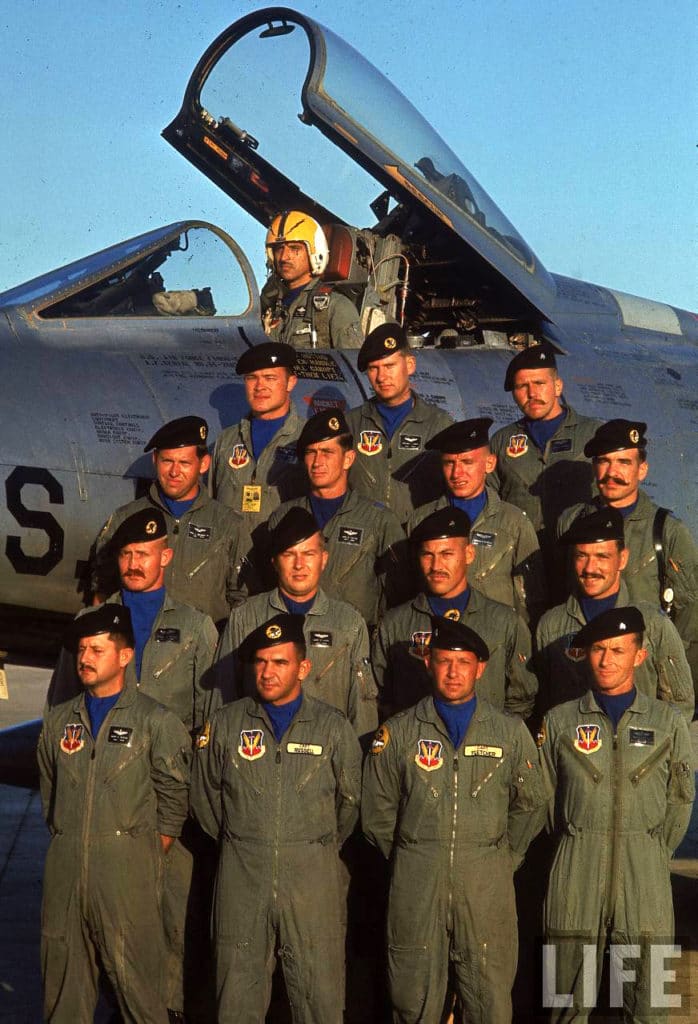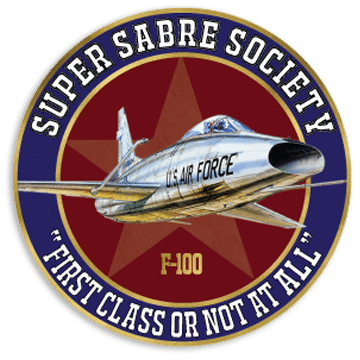On this day, Major Robert F. Ronca, commander of the 613th Tactical Fighter Squadron stationed at DaNang was leading a flight of four in Southeast Asia.

At the time, General Moore, the deputy commander for air operations, the Military Assistance Command in Vietnam, and Air America (CIA) were working together sending indistinct missions over North Vietnam and Laos to interdict the Ho Chi Minh trail. The aim of the effort was to suppress the North Vietnamese-backed communists called the Pathet Lao (who had been seen transporting supplies for insurgents into South Vietnam). Ronca’s mission was attacking anti-aircraft positions near the Ban Ken Bridge in northern Laos.
Before taking off on the mission, Ronca had expressed his desire to remain in South Vietnam beyond his tour of duty to continue flying combat missions.
Ronca led his squadron of F-100’s aggressively attacking the target on the first pass. Major Ronca’s aircraft was hit by ground fire and began leaking fuel. Ronca, with complete disregard for his own safety, continued his mission leading a second attack before his crippled aircraft crashed into a hill in the communist held Sam Neau Province in Laos. No parachute was seen.
He was listed as Killed in Action on that day, his body recovered two days later.
His Air Force Cross Citation reads:
Major Robert F. Ronca distinguished himself while engaged in military operations involving an opposing armed force in Southeast Asia on 19 February 1965. On that date, Major Ronca led an airstrike on an objective of extreme importance. After aggressively attacking the target on the first pass, Major Ronca’s aircraft was severely damaged by the intense ground fire. Realizing the importance of totally destroying his objective, Major Ronca, with complete disregard for his own safety, reassured his flight that he could continue the mission and did aggressively lead a second attack. Although his aircraft was critically damaged, a determined attack was successfully completed resulting in heavy damages to the opposing forces before his crippled aircraft crashed into the target area. Through his extraordinary heroism, superb airmanship, and exemplary devotion to duty, Major Ronca reflected the highest credit upon himself and the United States Air Force.
